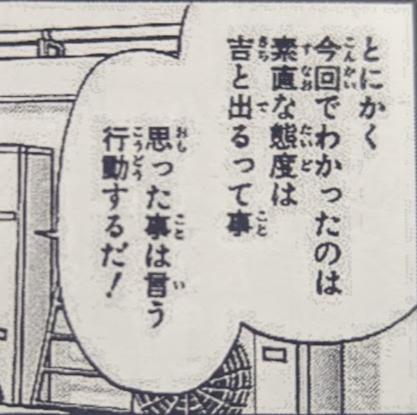Omitting こと in a list of actions
This one was really weird the first time I came across it and it was hard to parse until I asked a native speaker to explain it to me.
Here’s the example that saw:
とにかく今回でわかったのは、素直な態度は吉と出るって事、思った事は言う、行動するだ!
First of all, this confusing sentence employs another slang technique of implied quotes (see the だ at the end), but what is very misleading is the way the sub-phrases 思った事は言う and 行動する are separated.
Here is how the full sentence is broken down:
今回でわかったのは (= the things that I learned this time are…):
- 素直な態度は吉と出るってこと
- 思ったことは言う(こと)
- 行動する(こと)
だ
Basically the speaker is listing 3 actions that he learned, but they are three somewhat separate clauses that should’ve been nominalized. It’s just somewhat implied.
